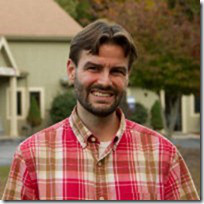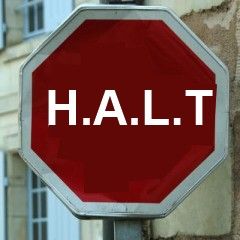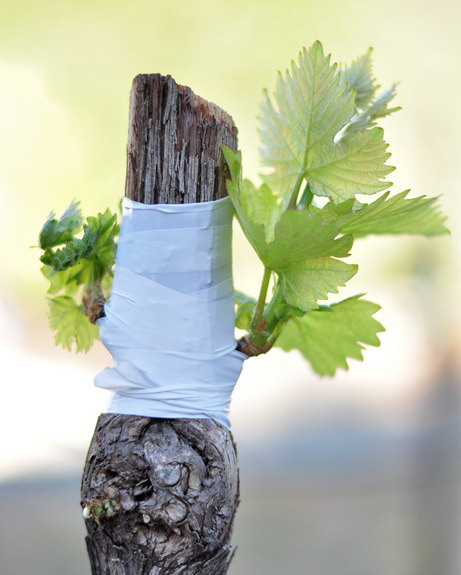Shownotes for Episode 14: How-to pair wine and chocolate for a great party + a chat with author, Ed Cyzewski
Podcast: Play in new window | Download (Duration: 46:47 — 64.2MB) | Embed
Subscribe to Spark My Muse Apple Podcasts | Spotify | Email | TuneIn | RSS | Subscribe to Spark My Muse
BANANA CART?
(Your ears are not fooling you. In Columbus, Ohio at 9:30 pm a man rides a bike around and rings a bell as he sells frozen chocolate covered bananas. Too funny. And it sounds delicious, if not suspicious. That’s why I’m featuring chocolate in the wine segment today! Enjoy it. It’s bananas, after all.)
Want to try the practice of EXAMEN?
In this episode Ed and I chat about one of his favorite spiritual practices. It’s been very transforming for me too. It’s the practice of Examen (typically pronounced: EGGS-Aye-men).
This age old practice of reflection, mindfulness, and prayer to begin and end one’s day goes back ages in Christian History and is reflected in spirit throughout the bible. Like in David’s sentiments in the Psalms (like Psalm 119) and in Isaiah 26:9.
“My soul yearns for you in the night; in the morning my spirit longs for you…”
So today I offer you my personal version of the Examen practice!
I call it “The Daily Sharpening Ritual”
–It’s the perfect way to supercharge and renew personal and spiritual awareness in your life.
It’s a simple but effective worksheet makes the practice easier to sustain. I hope you give it a try.
The practice takes just 3-5 minutes each morning and just before bed.
• You can see surprising changes in awareness in only 5 days.
(Simply print out 5 copies and follow-through for 5 days!)
Both EXAMEN-like worksheets below work like an Examen practice, but the 2nd one features prayer more fully in addition to reflection and mindfulness.
Check them out to see which one you like best. Print out both if you’d like:
 • The SHARPENING Ritual
• The SHARPENING Ritual
• The SHARPENING Ritual
(PRAYER-centered VERSION)
(Enjoy these resources with my compliments…tipping what you can is optional.)
How we find spark:
We are in this together. As you listen and become part of what is happening here, it will be obvious that I spend a lot of time and a bit of money doing the show: website, paying for media hosting, producing it, editing, adding music, finding and speaking with guests, more editing, more research, and all the rest to bring you something of value in the Spark My Muse podcast.
Lots of heart, sweat and occasionally tears for your enjoyment and inspiration. You get to decide what that means and what it’s worth.
So, I invite you to just listen, read, and contribute what the episode is worth to you.
• If nothing, I apologize. Please, come back and listen again soon.
• If you think it’s worth one dollar, five dollars, twenty-five dollars, six hundred billion-gazillion dollars…you see where I’m going with this…, or offer something of equal value that is not monetary, simply contribute what it has been worth to you. HERE.
(or contact me here if it’s not monetary. Be creative!)
Thank you!
With Love,
~Lisa
WINE SEGMENT
MINUTE 2:30
Best tips for the tastiest pairing Party of chocolate and wine!
A how-to.
A chocolate and wine tasting party is so much fun.
• It’s ideal for groups of 3-12 people.
• Have each person bring some wine and provide samples of high quality chocolate and let the fun start!
It’s the acid:
One of the tasty things you can do is pair chocolate and wine. Both chocolate and wine have higher levels of acidity which makes them a naturally delicious match.
Well-paired wine and chocolate work together to make each one taste better. Delicious qualities come out in both the wine and the chocolate and even form a third taste. A careful selection is needed.
Here are some ideas of which wine to pair with which kinds of chocolate treats.
TIP 1
The most important tip to remember is to keep the wine sweeter than the treat it’s pair with.
(If you don’t it can make the wine seem less tasty and flavorful or heighten its bitterness. yucky.)
TIP 2
Make sure you have high-quality chocolate.
Many supermarketers have a premium chocolate section and you probably only need one bar of each kind or just a good quality box assortment. Baked good work as well and you can search online too.
TIP 3
Taste test the chocolate ahead of time: Pick out certain fruit flavors, determine the sweet and bitter components they have, check for nuttiness qualities and levels of acidity. If the chocolate has a creme center this will take on added complexity that might pair well with fruit-forward wines.
TIP 4
A rule of thumb is that darker wines tend to pair better which darker chocolate and should be served first: More full-bodied, (heavier feeling in the mouth) dark and drier (not a sweet style) red wine pair well with the more bitter chocolates that have a higher cocoa %.
White wines tend to pair well with milk chocolate blends and chocolates that have sweeter and fruitier flavor notes.
TIP 5
Remember TIP #1 one …keep the wine SWEETER than the chocolate!
MAKING A MATCH
Pick your wines according to the flavors you’ve tasted in the chocolate, and ask your guests to bring a specific variety of wine.
Here are some specific ideas for the kinds of wine you may want to serve, but you can feel free to experiment and see if your palate prefers something different.
Bittersweet chocolate (70% to 100%): This chocolate type enters the bitter range with deep intensity. Good choices include Bordeaux wines (merlot, cab franc, cab save), Beaujolais, Shiraz, Port, Malbec.
Dark chocolate (50% to 70%): Pair this with more robust wines, such as Cabernet Sauvignon, Zinfandel, Pinot Noir, off-dry chamborcin and Port. A Chianti can match well with chocolate around 65 percent cocoa content.
Milk chocolate: Try Merlot, Pinot Noir, Riesling, Muscat, and dessert wines. Champagne is also a natural match for milk chocolate. The crisp, dry flavour of the bubbly contrasts perfectly with the creaminess of a simple milk chocolate tablet. Be careful of the higher sugar levels in milk chocolate, as these may cancel out any fruitiness in dry red wines, leaving them tasting bitter.
White chocolate (which is really cocoa butter) : Match with Sherry, Muscato (a.k.a. Muscat) a fruity Chardonnay (un-oaked), These wines will pick up on the buttery, slightly oilier tones of the cocoa butter. Vidal Blanc, Niagra blends, catawba blends.
Champagne or sparkling wine goes well with all chocolate types. It is a variety that compliments many kinds of wines. Many fortified dessert wines work well across the chocolate spectrum as well because they tend to be sweeter.
PARTY TIP
To keep every one sharp and feeling well, Offer your guests some bread or light fare before you begin and keep the wine samples to just an ounce.
HOW TO TASTE THE PAIR
1. Take take a small sip of wine and note the aromas and tastes. Some hosts offer guest a sheet to jot down their observations.
2. Then bite into the chocolate and note what it happening as you taste and eat it.
3. Then you sip the wine again and note the new flavor notes and changes that the chocolate brought to the wine. It’s amazing how much the taste of the wine will change according to what it is paired with.
4. Don’t rush through the pairing. 7-10 minutes per pairing is about right. Allow people to really luxuriate on the experience and talk about the flavors and taste combinations they are experiencing.
AMBIENCE TIP
This is not a consumption event, it’s a sensory group experience where enhanced awareness is key. Relax and take your time. Chocolate and wine are luxury items.
THE TAKEAWAY
It’s a great lesson for life too. The point isn’t to bulldoze through life and get it out of the way, but to really notice what is happening and take it all in deeply. Downshift to a better appreciation of encounters with others, with our surroundings, and ultimately with ourselves and to God who makes a home within us.
• Enjoy yourself and let me know of the pairings you came up with (in the comments section) and how your pairing experimenting went, or what your plans are. I’d love to know. You can post pictures at the Spark My Muse Facebook page too.
Do you have questions? Leave them here, use the voice mail feature, or use the contact page and I’ll try to answer them in future episodes.
Sparking your Muse…
a chat with Ed Cyzewski

Visit Ed’s website.
Interview notes
11:00
Ed talks about his upcoming Christian Writer’s Survival Guide book
12:30
The practices of prayer and writing are connected in so many ways.
12:30
and how Ed is learning more about Holy Spirit and waiting on the Lord
14:30
From my experience…”Type A” or productive person’s view of prayer is active or proactive (maybe not involving much listening to God) (Lisa)
15:00
Apophatic prayer – God is found in the silence more than I thought (Lisa)
15:30
“The Creative process and prayer require us to enter with hands open”.
16:00
For both (writing and prayer), you can’t force the outcome…
16:15
Submit to the process.
Do the work.
17:00
“[A] general principle is to create space to allow inspiration and good writing to happen.”
Maybe (it can happen) in retreats or in different ways.
19:20
My favorite podcast Krista Tippet’s show On Being Onbeing.org (Lisa)
20:15
Never a moment wasted because of technology…but at what cost?
21:00
(Ed) on not having times for his brain to slip into neutral..
21:30
Ed says walks helped clear his mind, and he had to detox and ween from media.
22:30
We have a loss of self and fear of quietness.
22:45
40 Day Ignatian retreat bringing a terrifying and alone sense after 2-weeks until she found God in the quiet.
24:00
Ed’s method for unplugging and creating space:
Relent technique-going offline after 5pm and weekends.
25:30
Leaving my phone in my car when I go for walk to eating out. (Lisa)
• I’ve experienced less anxiety (to my surprise).
27:00
(Ed’s sarcasm) College students in the 1990s would die all the time, every week, because they didn’t have cell phones. Funerals every week for the mobile phone-less.
27:30
In the 1980s my dad got collect calls from “pick me up”. (Lisa)
29:10
UK study showing that teens are more anxious because of tech and over-connectedness.
29:40
Maybe because the media (they are using) is socially consequential and not neutral: like watching tv or listening to radio. (Lisa)
32:00
From his upcoming book:
Allowing space to grow and learn. His spiritual practice of Examen.
The app he uses: Examine App
The practice helped him come up with writing topics.
33:30
The practice showed him the imbalance of his life.
35:10
Contemplative writer’s Facebook on group
37:00
37:50
The group has lots of generosity there like a support group.
39:20
How Ed keeps a balance in mood and outlook when the stories he writes about are negative and make him angry.
How he uses a generous redemptive approach and giving his anger time to dispute so he can write with redemption in mind, inspired by Richard Rhor.
40:00
God wants to redeem everyone.
40:30
…Controversy and hit pieces build a quick blog audience…but the challenge is to be redemptive and to still confront in love when necessary…
41:00
“I’d rather be an Atheist than attend the Village Church” (his angry article)
42:40
Trying to encourage others to be redemptive and holding back if he can’t do it in a redemptive way. Waiting is important.
43:30
How we change. Example: Women in Ministry and how Ed’s mind changed.
44:20
“God is all about the long game.”
(It’s not helpful to create animosity)
44:50
(Lisa) “The power of heightening Empathy (to solve problems). Sharing stories helps.
The job of a person who is called to communicate for something bigger than themselves is to ask…
‘Am I able to show people something that they haven’t seen, but then once they see they know it’s true. And they can’t unseen it’.”
“And to feel it too…what that (other) person is feeling.” -Ed
(If you’d like to have Ed back to discuss how writing can be “soul-killing” and what to do about it, please let us know and leave a comment! Was the show too long? Too short? Ed and I decided we are curious about this, so let us know.)
:)
Friends, readers, listeners…I need a little help with this anonymous survey.
It’s takes under one minute. It’s 100% anonymous. The survival of Spark My Muse just may depend on it.
Thanks for your kindness and coming back each Wednesday for a new show. (You can subscribe here and get an alert sent to you. No fuss: no worries…and you can unsubscribe any time).
BREAKING NEWS:
Shane Claiborne is joining Spark My Muse as a guest this summer! WHOOP whoop !!!













